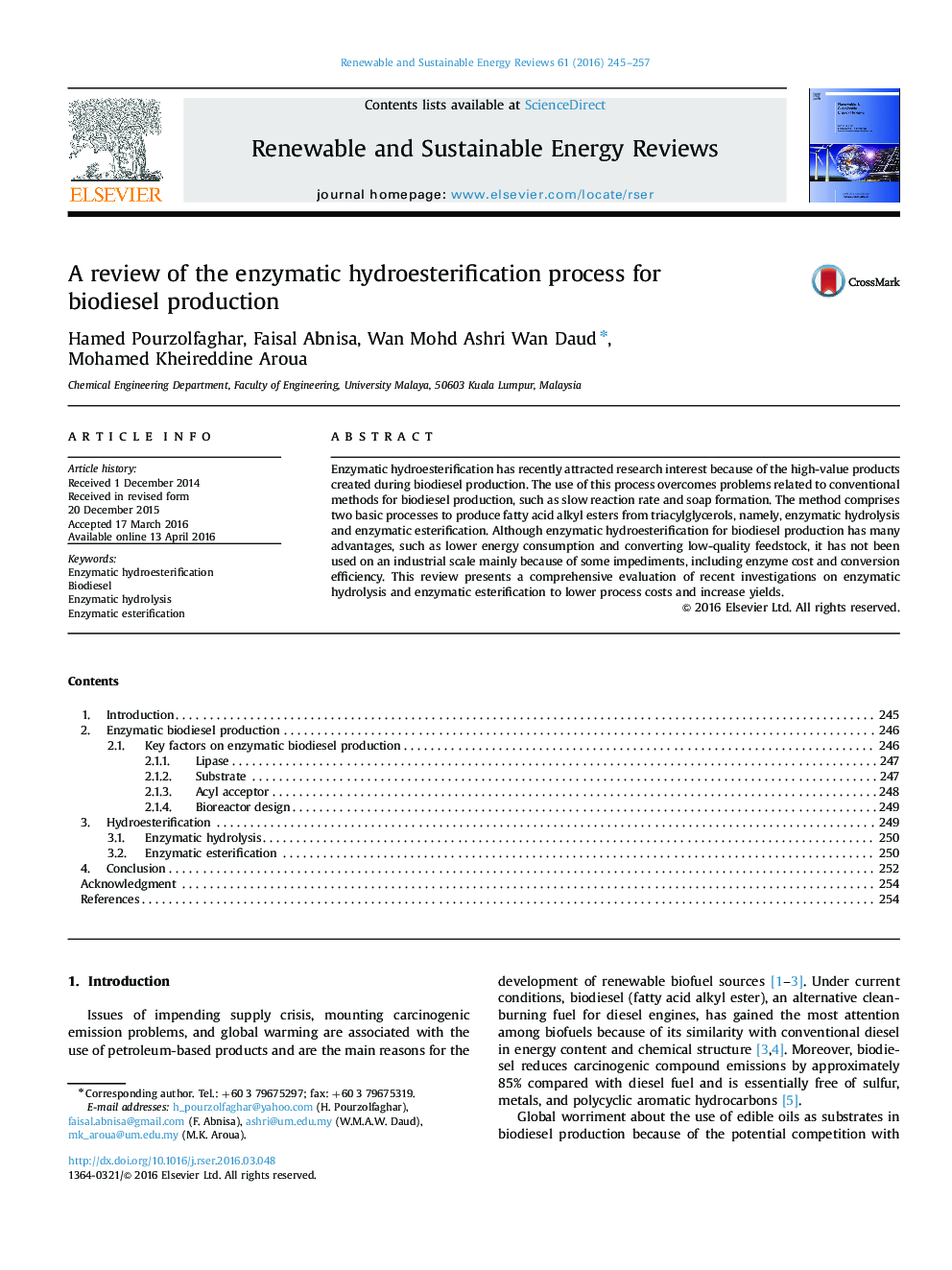| Article ID | Journal | Published Year | Pages | File Type |
|---|---|---|---|---|
| 1749796 | Renewable and Sustainable Energy Reviews | 2016 | 13 Pages |
Enzymatic hydroesterification has recently attracted research interest because of the high-value products created during biodiesel production. The use of this process overcomes problems related to conventional methods for biodiesel production, such as slow reaction rate and soap formation. The method comprises two basic processes to produce fatty acid alkyl esters from triacylglycerols, namely, enzymatic hydrolysis and enzymatic esterification. Although enzymatic hydroesterification for biodiesel production has many advantages, such as lower energy consumption and converting low-quality feedstock, it has not been used on an industrial scale mainly because of some impediments, including enzyme cost and conversion efficiency. This review presents a comprehensive evaluation of recent investigations on enzymatic hydrolysis and enzymatic esterification to lower process costs and increase yields.
